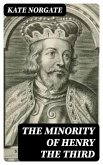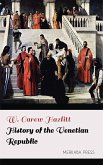In "Henry the Second", Alice Stopford Green delves into the complex reign of one of England's most significant monarchs, presenting a meticulous exploration of historical narratives intertwined with a distinctive literary flair. Green employs a scholarly approach that elegantly balances thorough research with engaging prose, offering readers insights into Henry's political maneuvers, conflicts with the church, and the shaping of English identity during the tumultuous 12th century. The book resonates with contemporaneous discussions surrounding nationalism and governance, making it an essential text in both historical and literary studies. Alice Stopford Green, a noted historian and biographer, was a pioneer in advocating for the inclusion of woman's perspectives in history. Her extensive academic background and passion for historical inquiry are reflected in her portrayal of Henry II, shaped by her own experiences as a woman in a predominantly male-dominated field. Green's dedication to illuminating the past, coupled with her ability to weave captivating narratives, positions her as a vital voice in the historiography of medieval England. Readers seeking a profound understanding of medieval politics, as well as those curious about Green's innovative historiographical methods, will find "Henry the Second" not only informative but also an engaging literary work that challenges traditional narratives. This book is a compelling addition to the libraries of both history enthusiasts and literary scholars alike.
Dieser Download kann aus rechtlichen Gründen nur mit Rechnungsadresse in A, B, BG, CY, CZ, D, DK, EW, E, FIN, F, GR, H, IRL, I, LT, L, LR, M, NL, PL, P, R, S, SLO, SK ausgeliefert werden.









